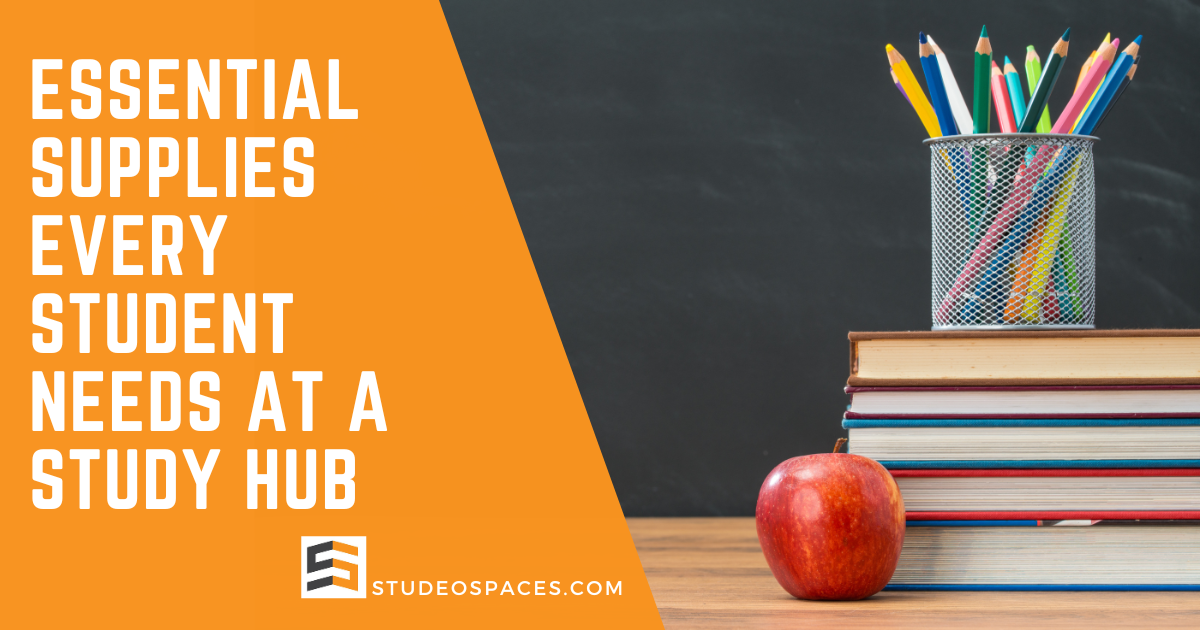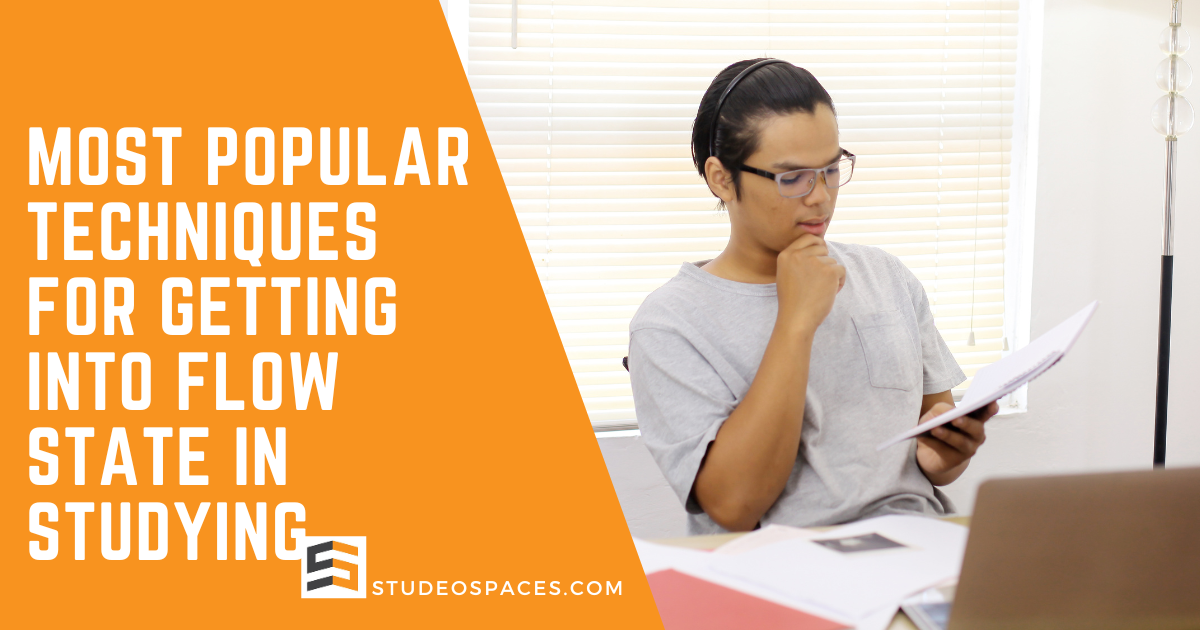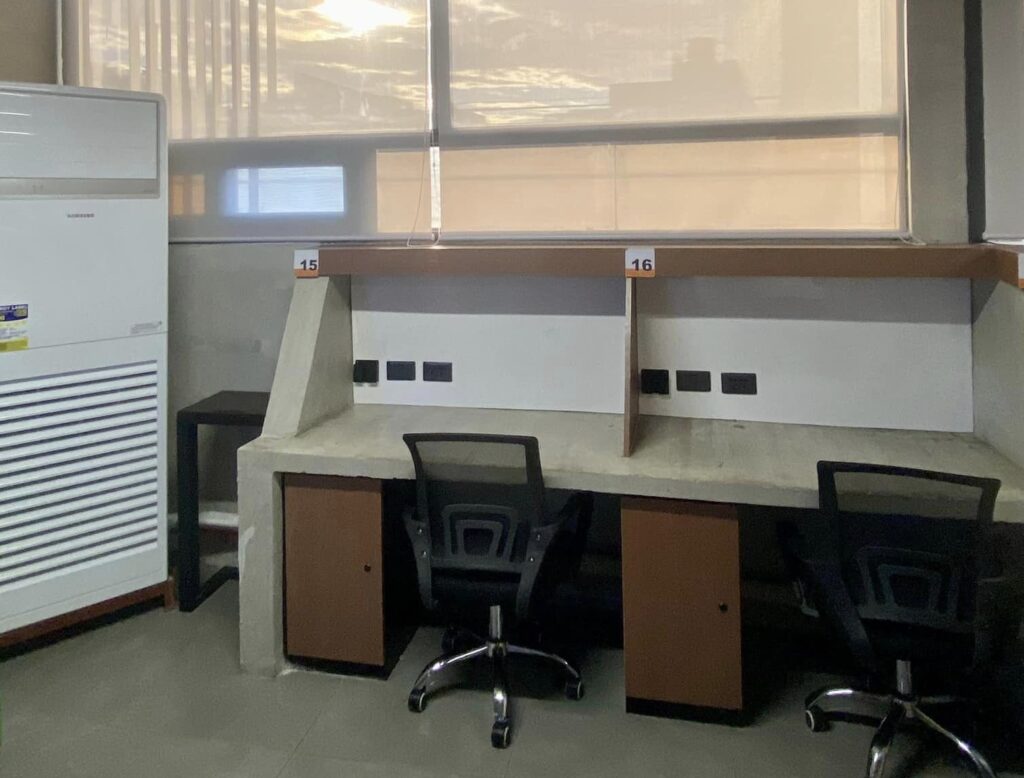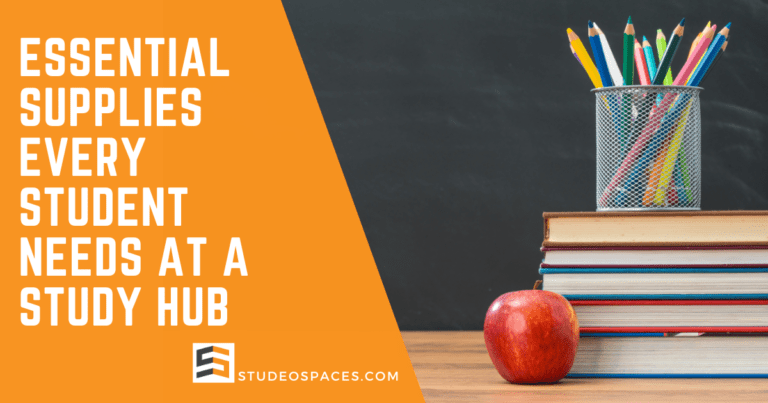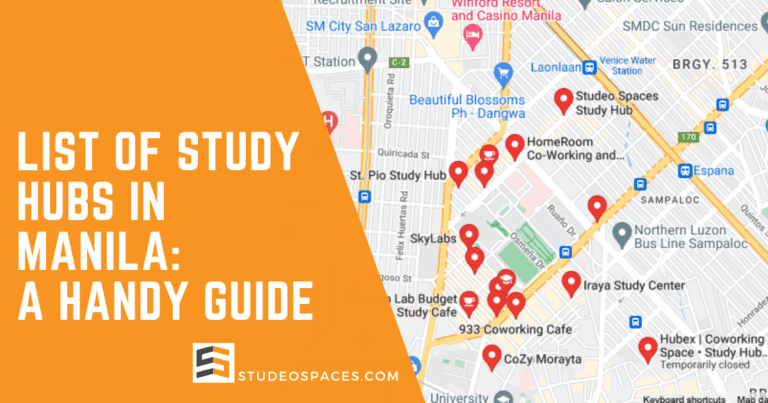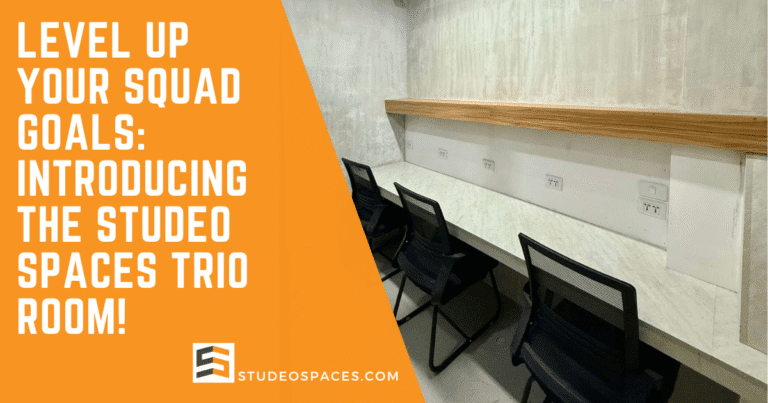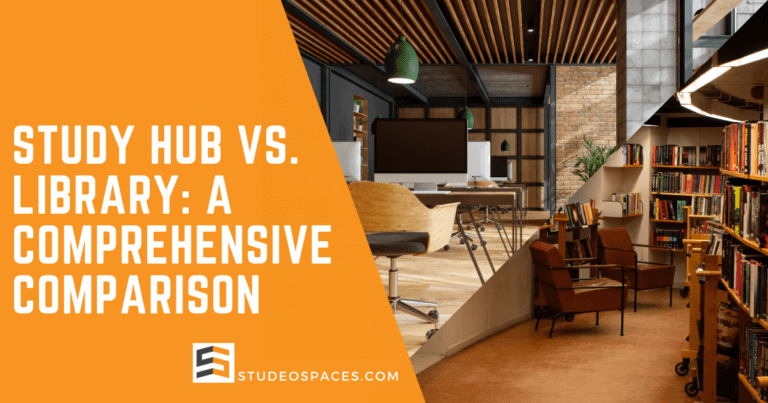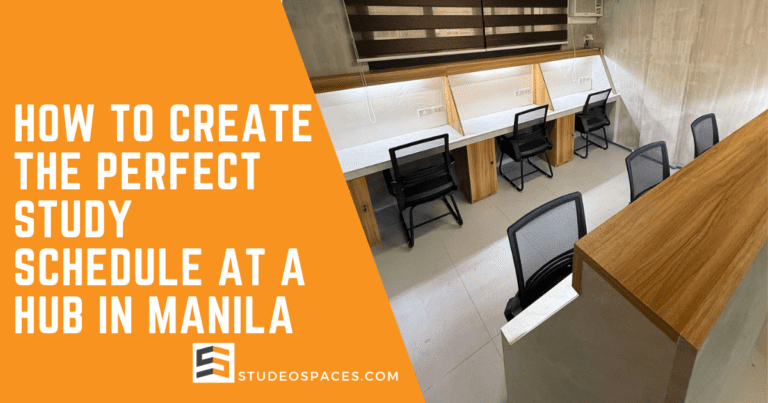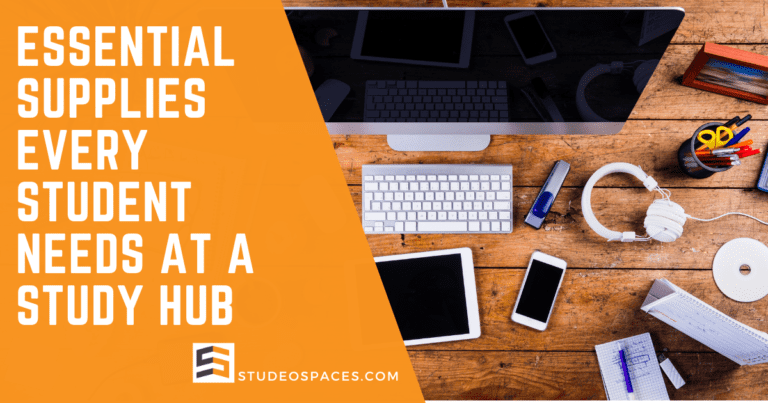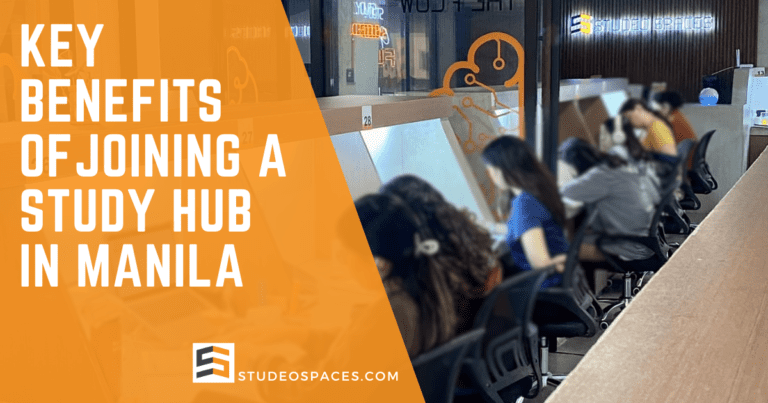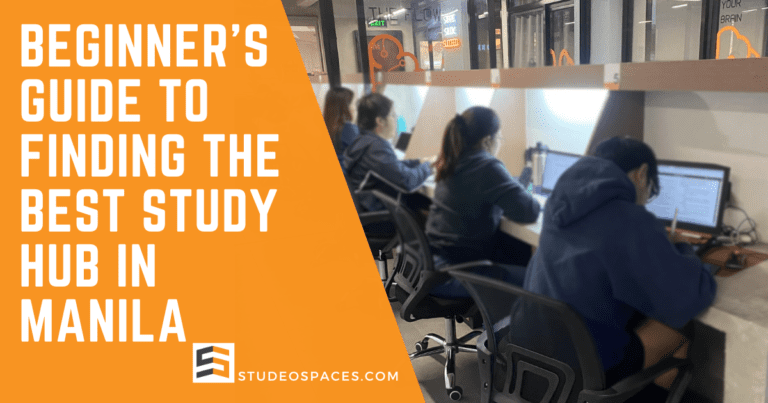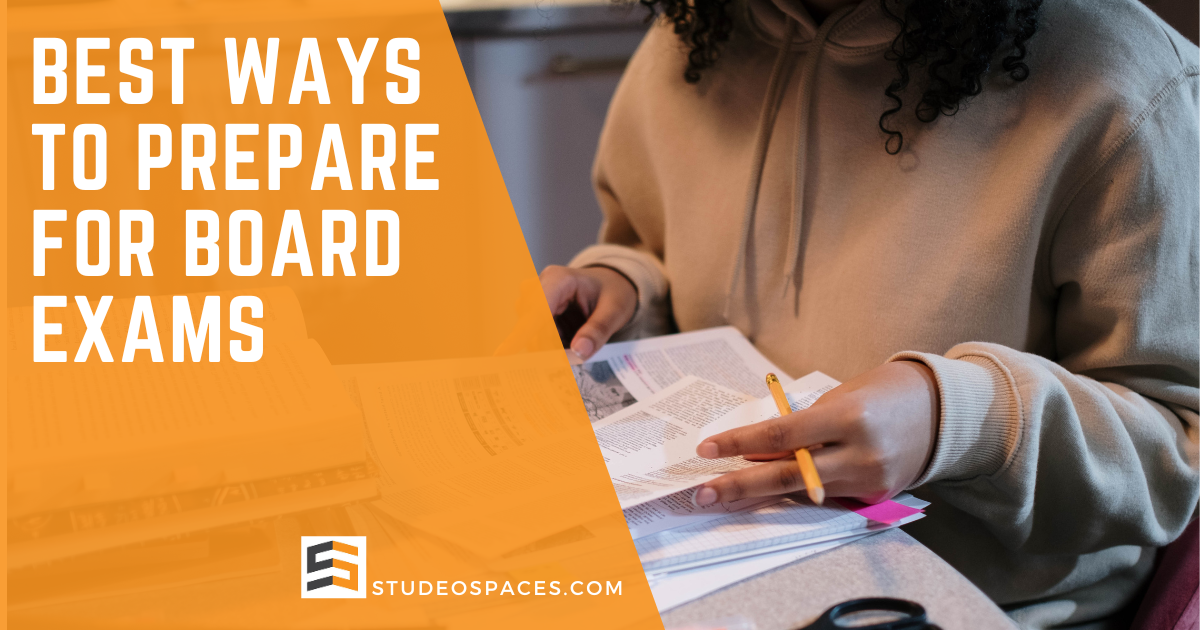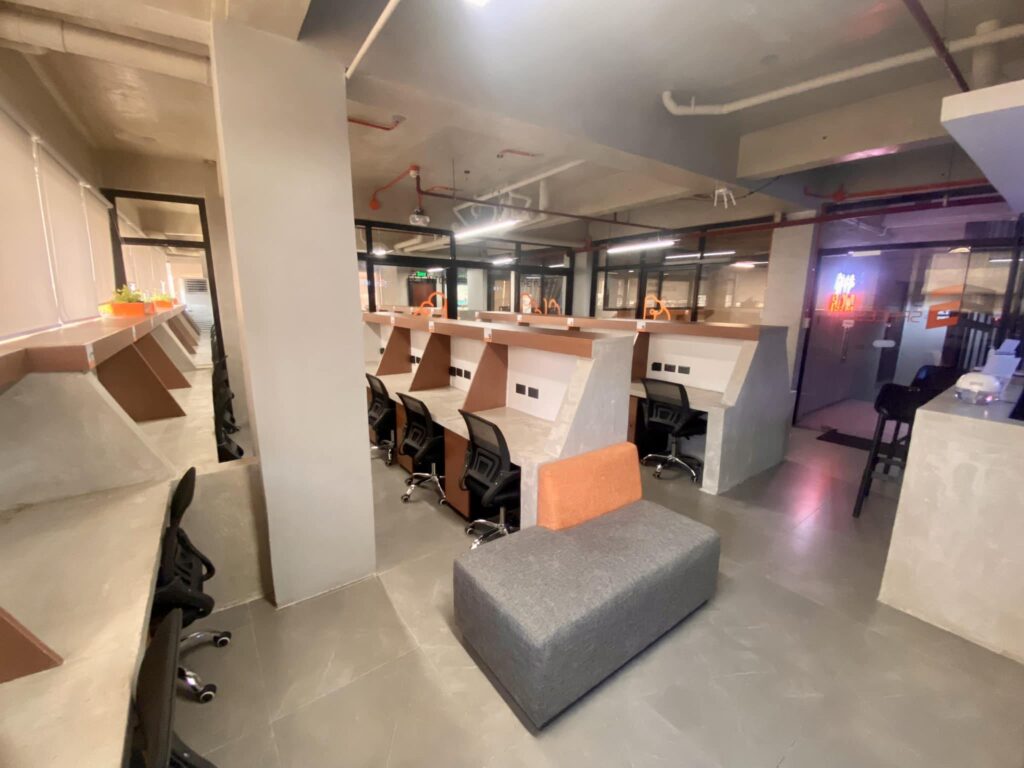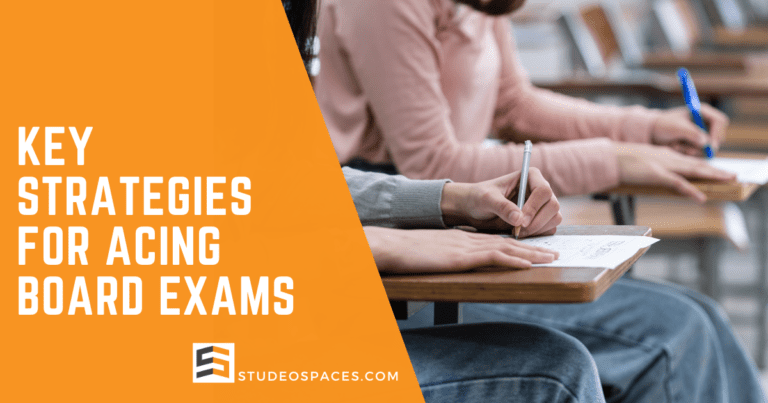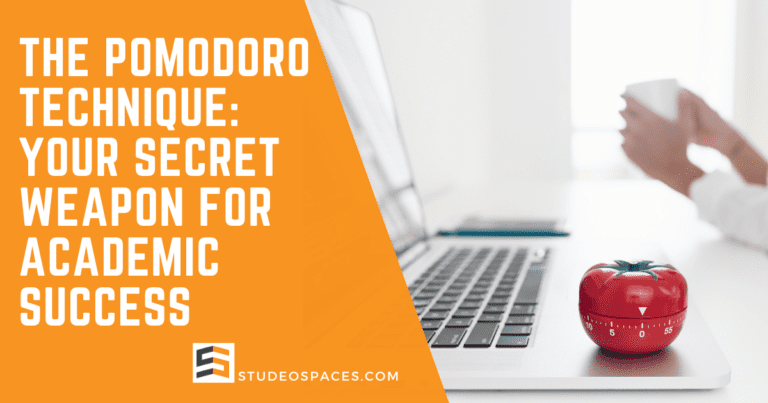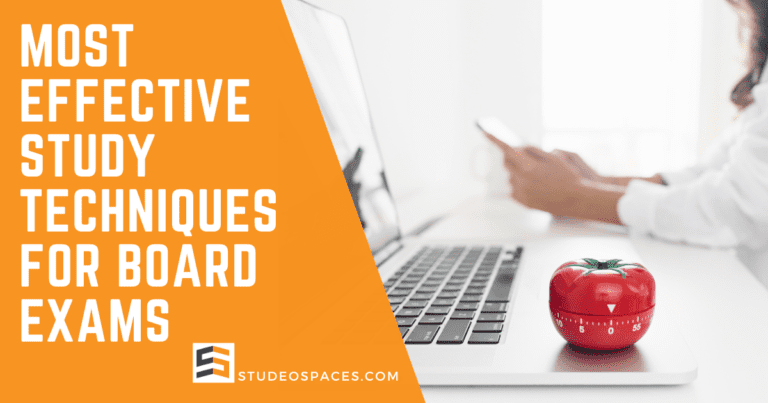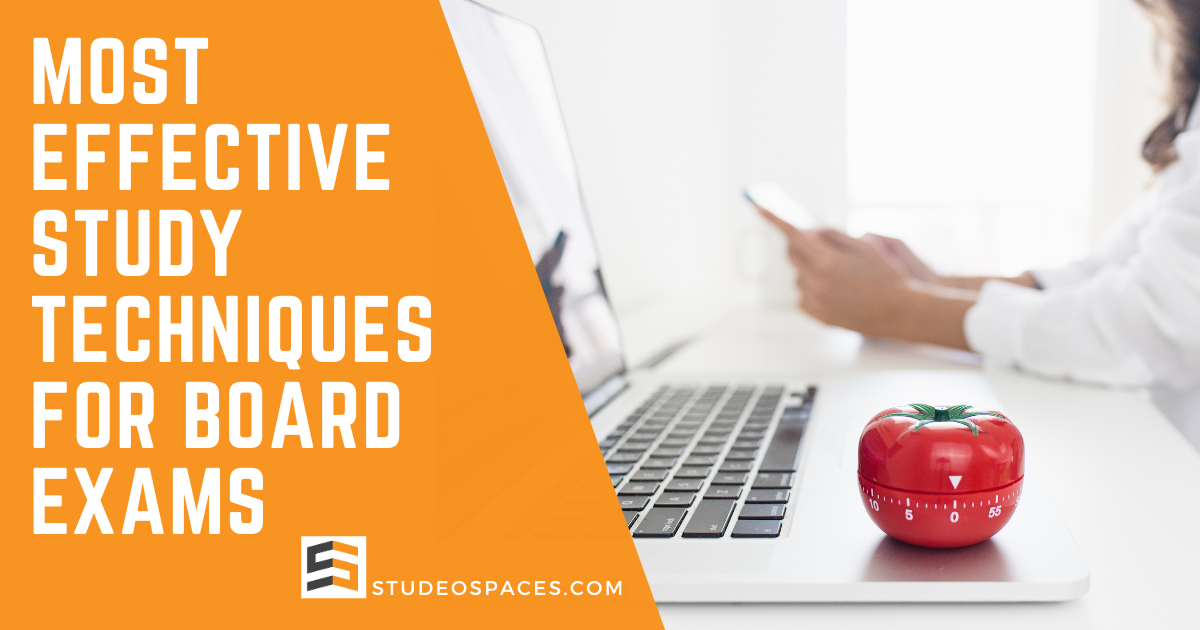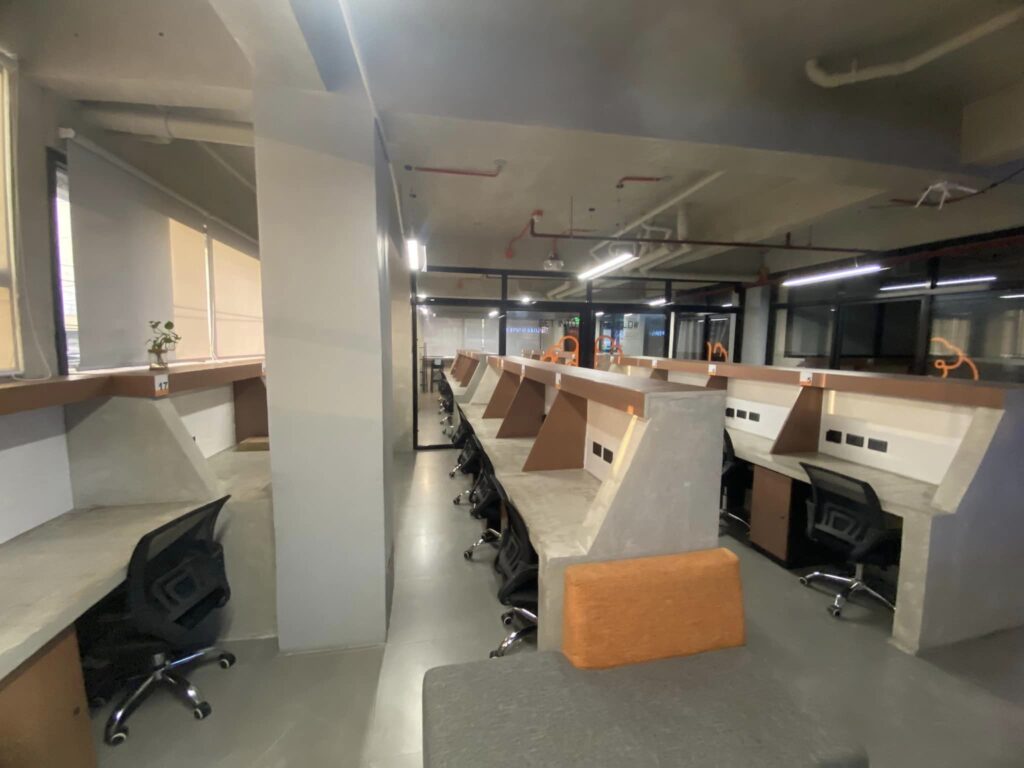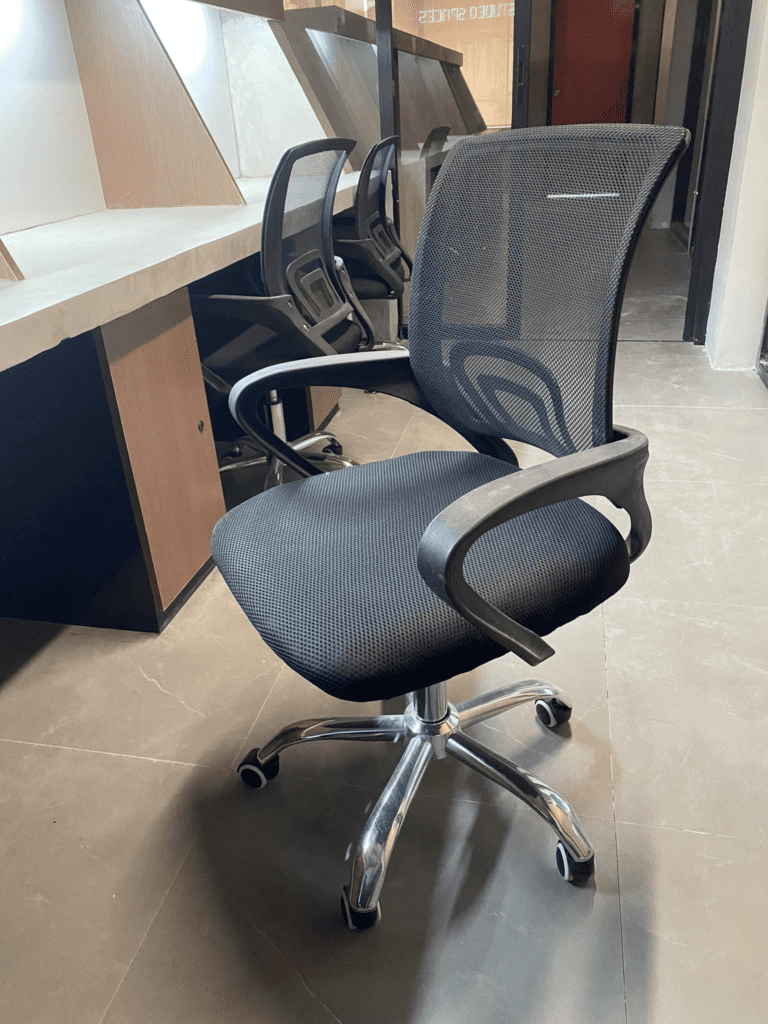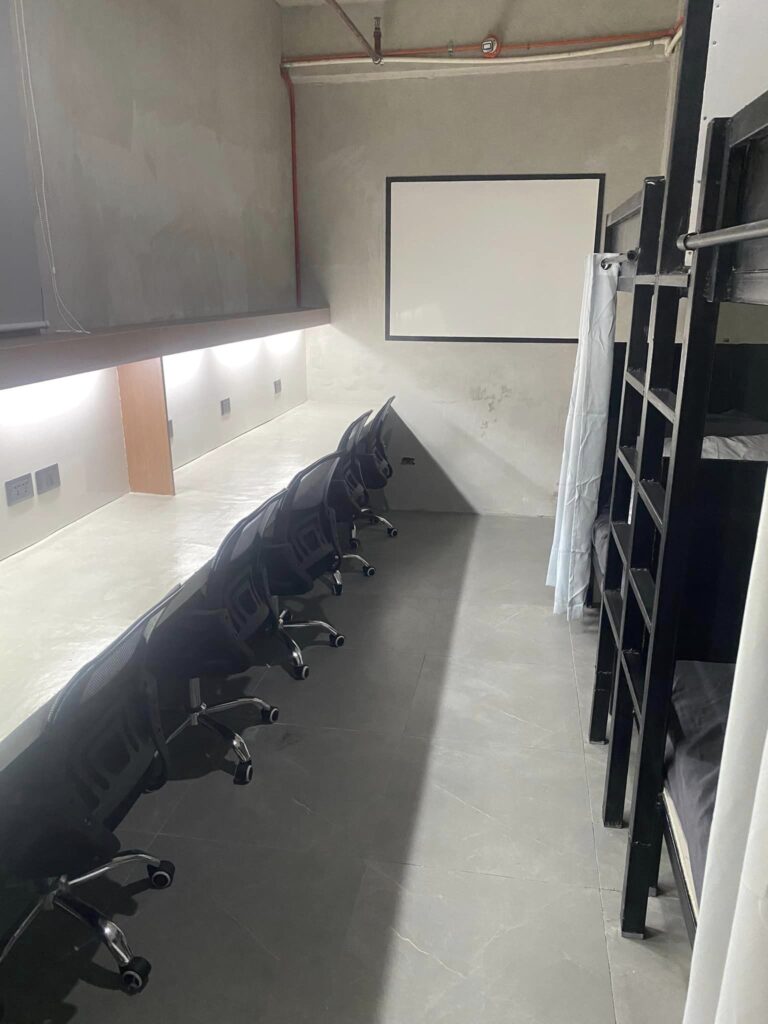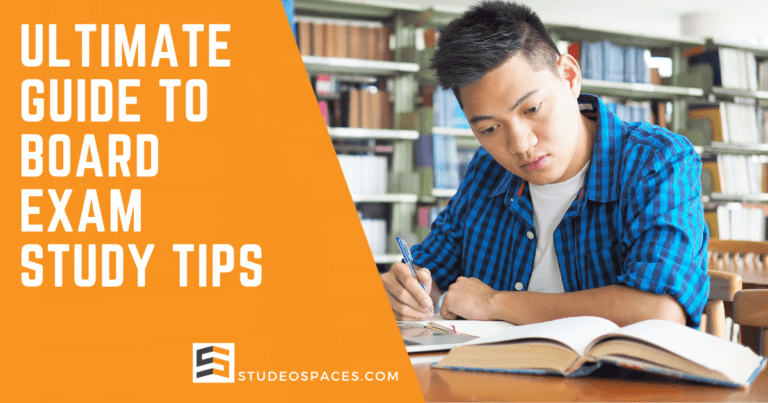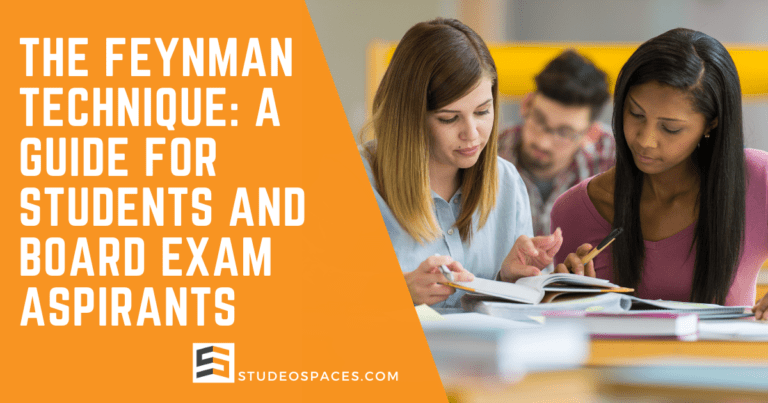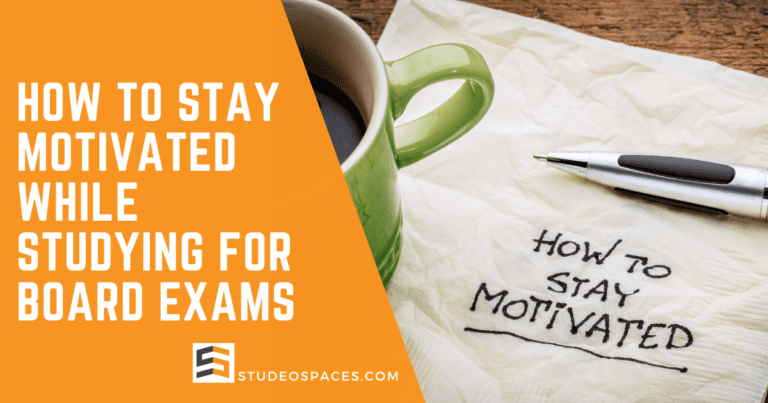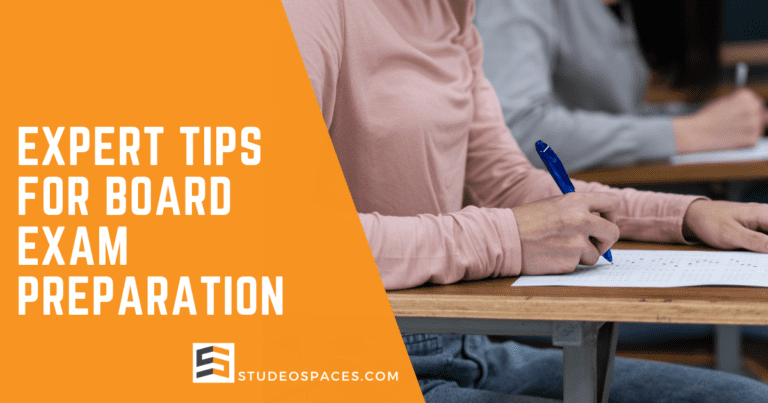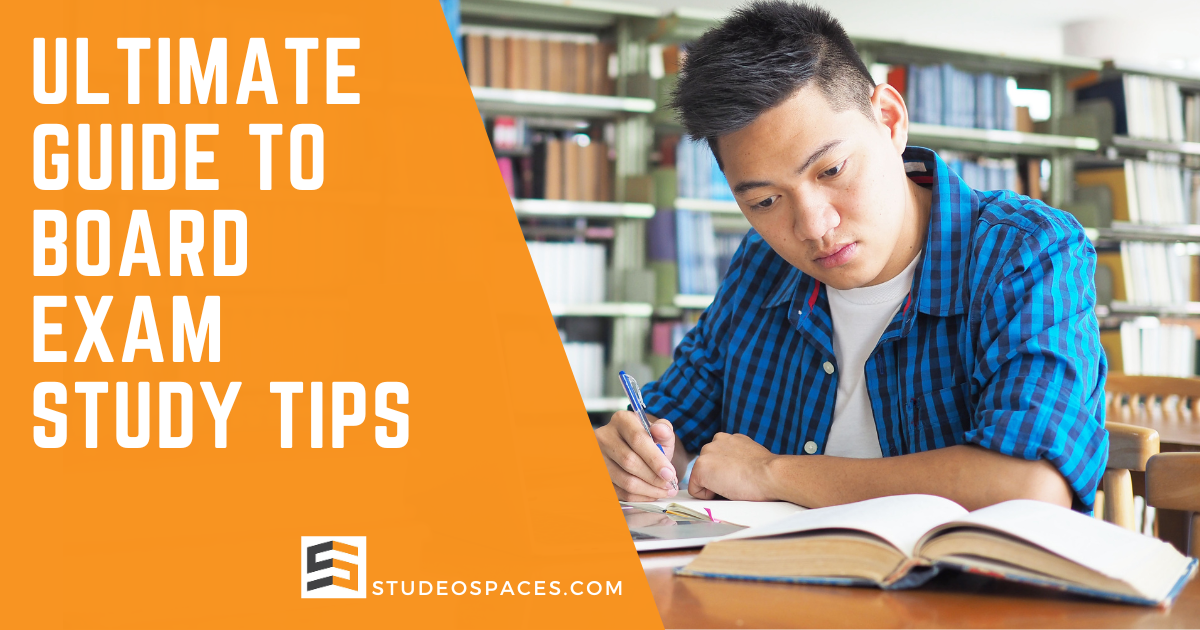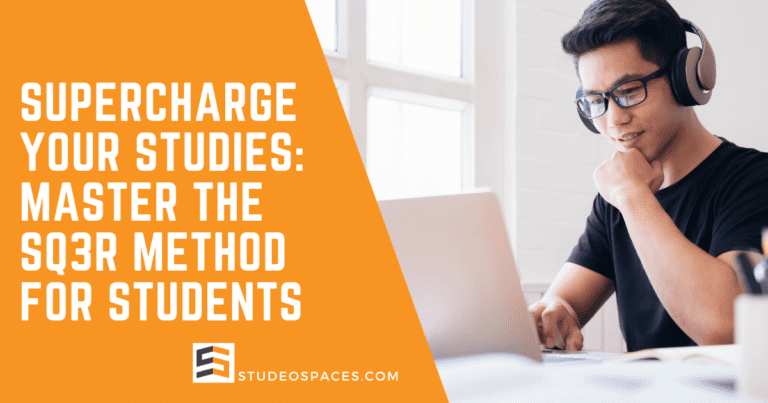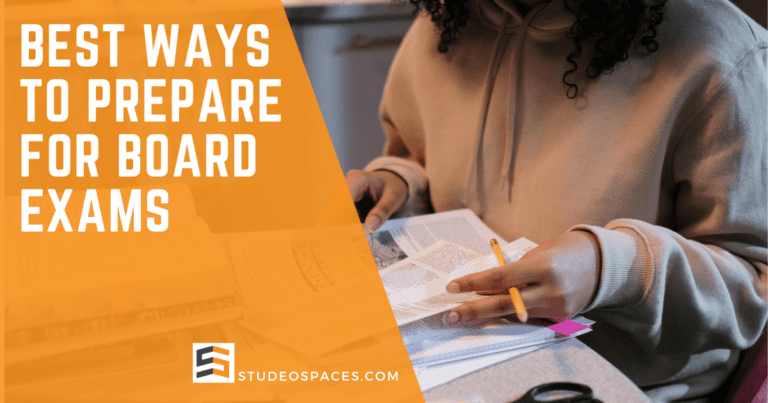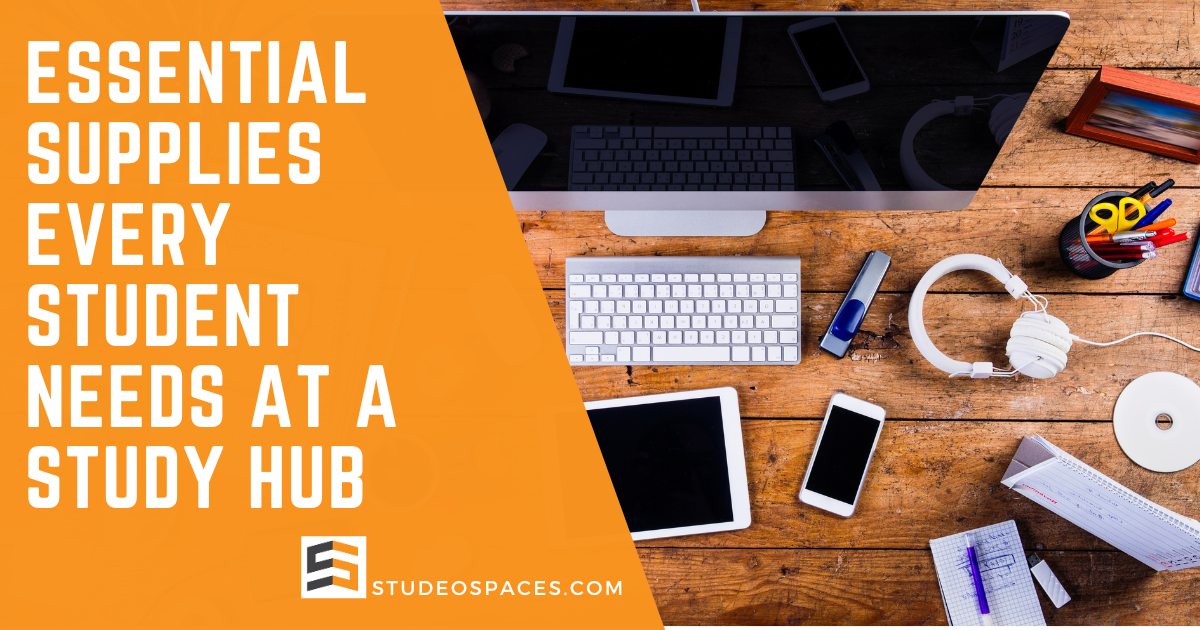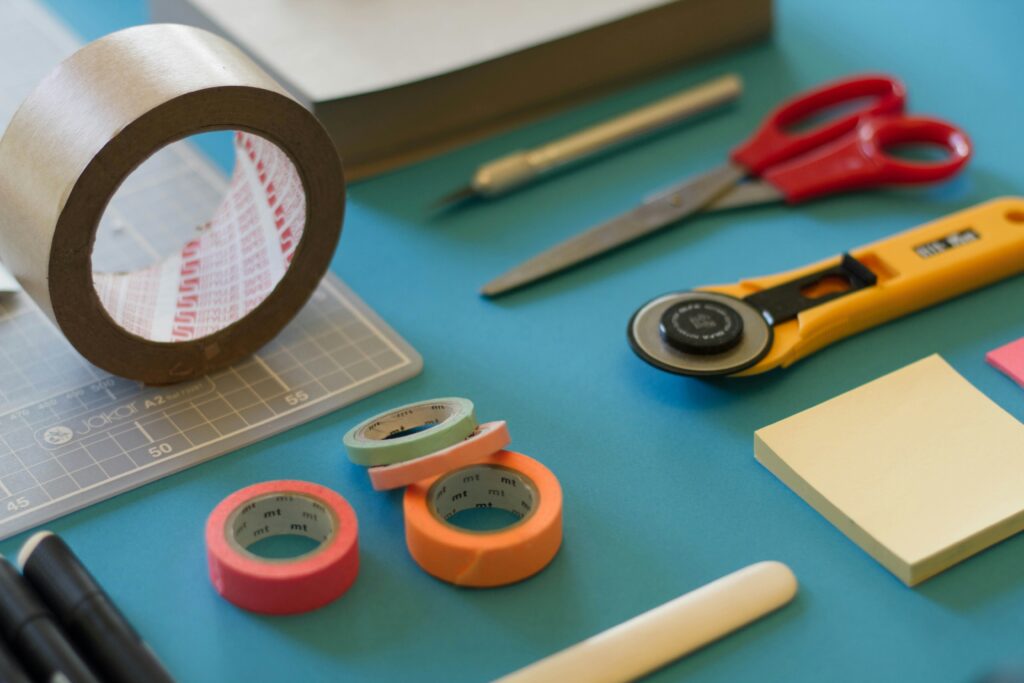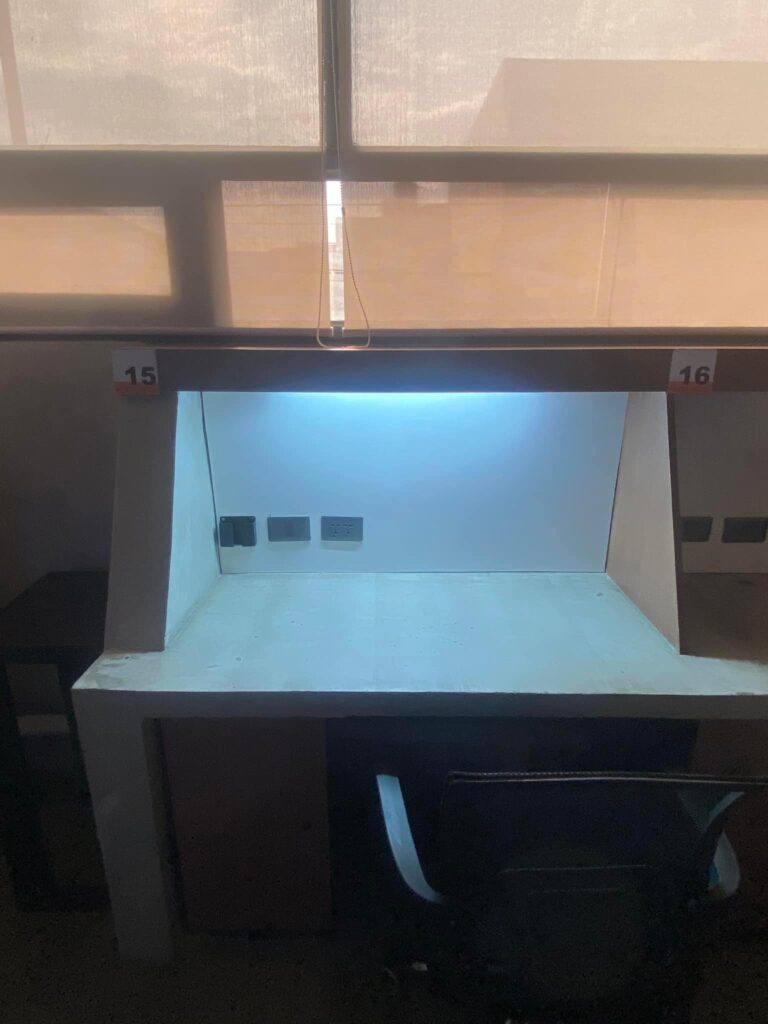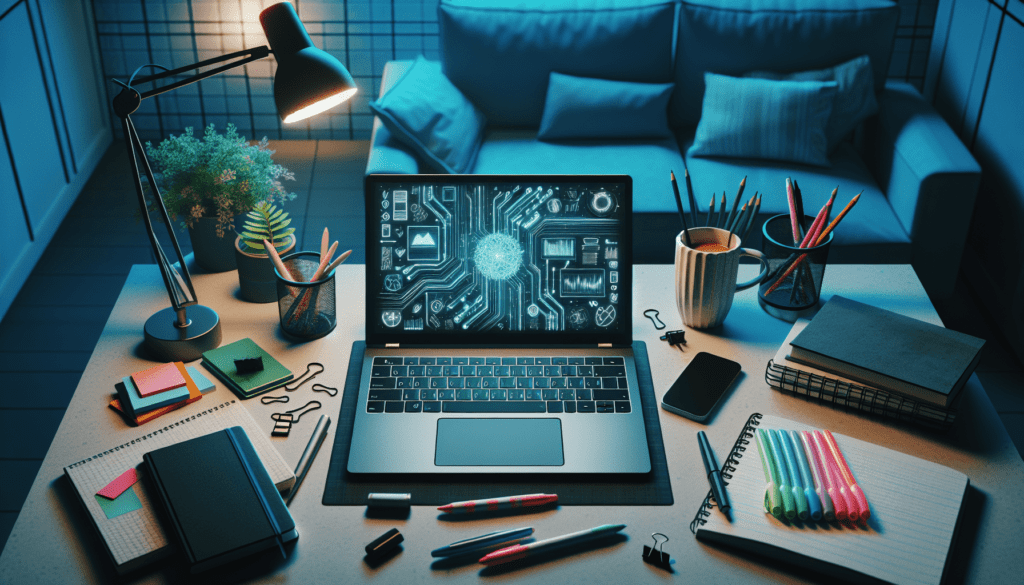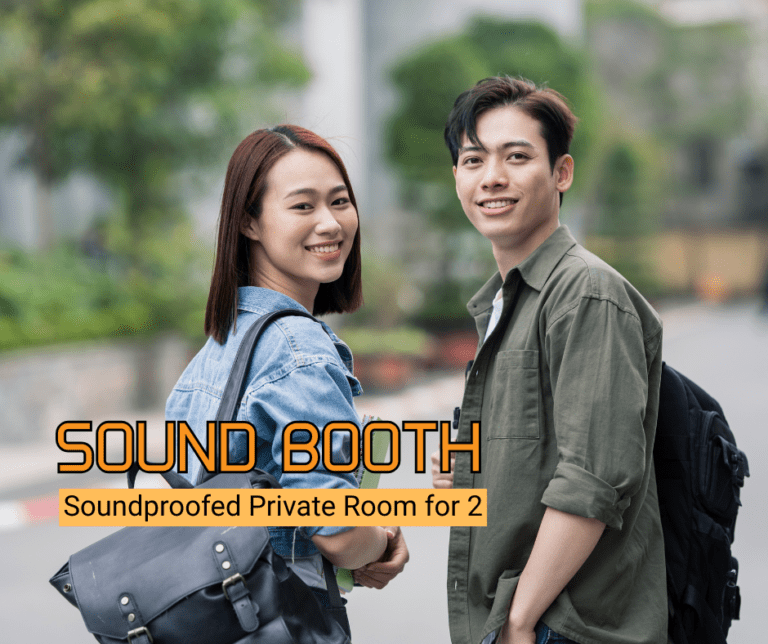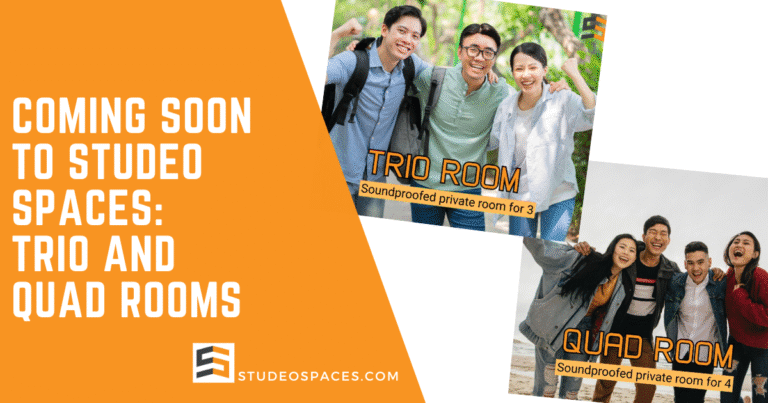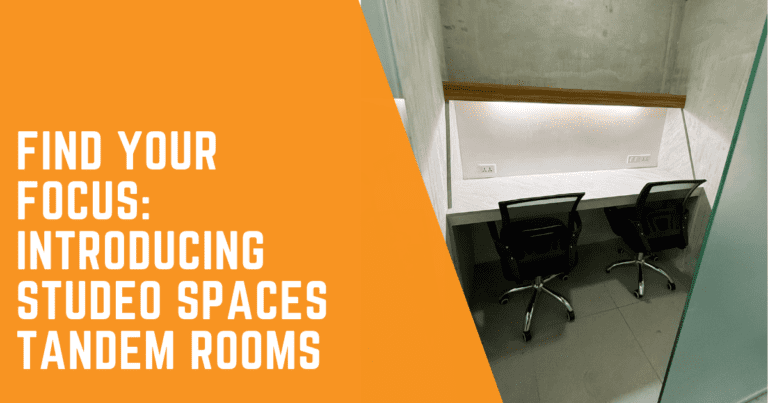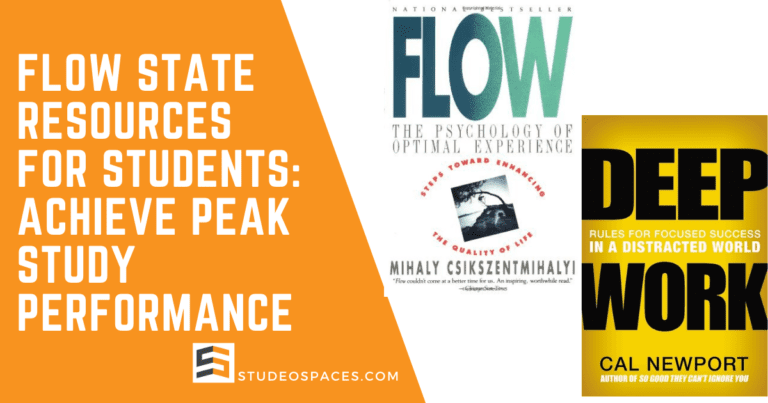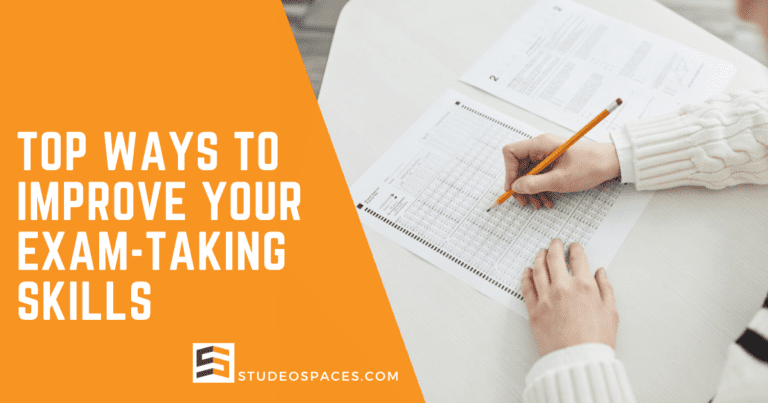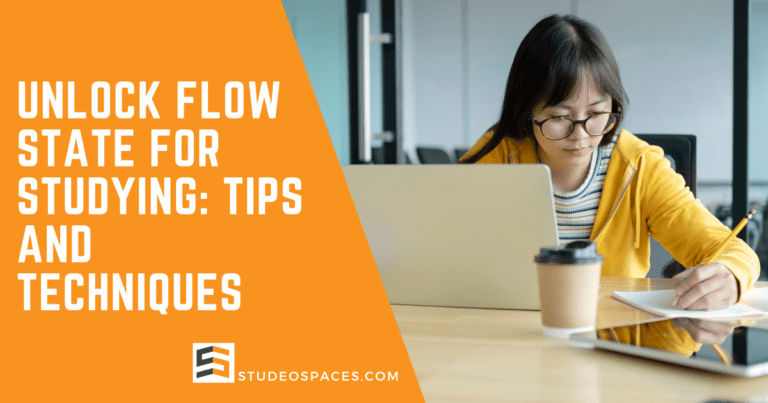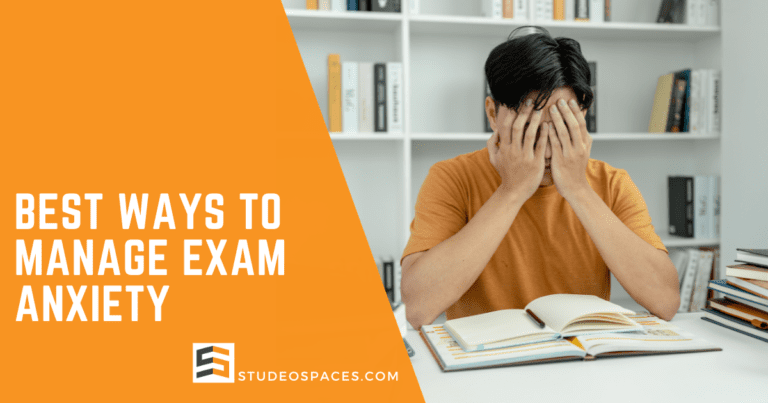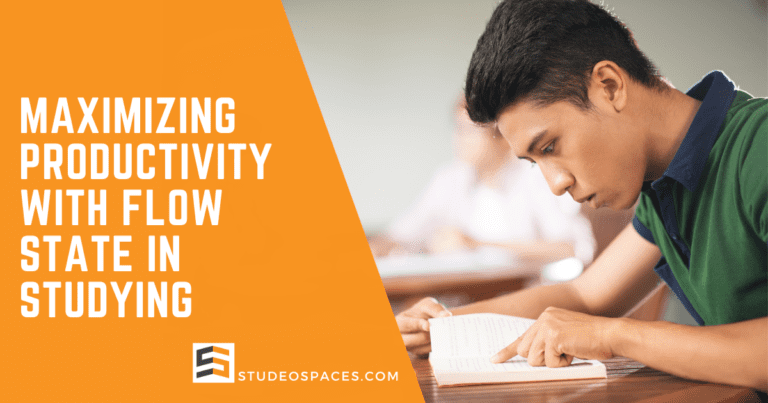
Achieving a flow state during study sessions can unlock benefits, transforming the often tedious learning process into an engaging and highly productive endeavor. When students enter this state of intense focus and immersion, they can retain information more effectively and solve complex problems with greater ease and creativity. The flow state fosters an environment where distractions fade away, concentration intensifies, and time seems to fly by, making study sessions more enjoyable and fruitful.
At the heart of this lies the right setting, precisely what Studeo Spaces Study Hub offers. By creating a meticulously designed, distraction-free environment, Studeo Spaces in Sampaloc helps students and professionals tap into their full potential, paving the way for academic and professional excellence. Whether preparing for crucial exams or aiming to enhance work performance, Studeo Spaces invites everyone to “Get Into the Flow” and excel beyond expectations. Have you ever found yourself completely absorbed in a task, losing track of time while effortlessly making progress? This state of focused immersion is often referred to as “Flow State,” it can be particularly beneficial during study sessions. But what exactly is flow state, and how can it enhance your learning experience?
What is Flow State?
Flow State, often described as “in the zone,” is a mental state where an individual is fully engaged and immersed in an activity. This state is marked by intense concentration, a sense of control, and a feeling of inner reward. Psychologist Mihaly Csikszentmihalyi first introduced the concept of flow, highlighting its importance for productivity and well-being.
Characteristics of Flow State
- Intense Focus: You are highly concentrated on the task at hand.
- Merging of Action and Awareness: You become one with the activity.
- Loss of Self-Consciousness: You are not concerned about failures or external judgments.
- Distorted Sense of Time: Hours can feel like minutes when in flow.
- Intrinsic Motivation: The activity is rewarding, and you feel driven to continue.
The Benefits of Achieving Flow State
Achieving a flow state during study sessions can bring numerous benefits, significantly enhancing productivity and learning outcomes.
Enhanced Learning and Retention
When in a state of flow, your brain is highly engaged, leading to improved comprehension and retention of information. This deep focus allows you to connect new knowledge with existing concepts, making learning more intuitive.
Increased Productivity
Flow state helps you accomplish tasks more efficiently. With fewer distractions and a heightened sense of purpose, you can complete your study goals quickly while maintaining high-quality work.
Boosted Creativity
Flow state often leads to heightened creativity as your mind can explore ideas and solutions more freely. This can be particularly beneficial for subjects that require innovative thinking or problem-solving.
Stress Relief
Being in flow can serve as a form of mental relaxation, helping to reduce stress and anxiety. The intrinsic reward of completing tasks satisfactorily can improve your mood and overall well-being.
Greater Satisfaction
The sense of achievement and reward experienced during flow can increase overall satisfaction with your study sessions. This positive reinforcement can motivate you to maintain productive habits.
How to Achieve Flow State During Study Sessions
While achieving flow may seem elusive, specific strategies can make it more attainable.
Choose the Right Environment
Selecting an environment conducive to concentration is crucial for entering a flow state. Opt for spaces that are quiet and free from distractions.
Eliminate Distractions
Turn off notifications, put away your phone, and create a clutter-free environment. This helps maintain your focus and makes diving deep into your work easier.
Set Clear Goals
Clear, achievable goals can guide your focus and make immersing yourself in the task easier. Break down larger tasks into smaller, manageable chunks.
Balance Skill and Challenge
For flow to occur, the task must balance being challenging and matching your skill level. If the work is too easy or tricky, achieving flow becomes more difficult.
Use a Timer
The Pomodoro Technique, which involves working in short, focused intervals followed by brief breaks, can help you maintain concentration and reduce fatigue.
Take Care of Your Physical Needs
Ensure you are well-rested, nourished, and hydrated before starting your study session. Physical discomfort can be a significant distraction, preventing you from attaining flow.
Common Obstacles to Achieving Flow
Even with the best strategies in place, certain factors can hinder your ability to reach a flow state.
Multitasking
Trying to juggle multiple tasks can scatter your focus, making it difficult to immerse yourself in any one activity.
Poor Time Management
Without a solid plan, it’s easy to feel overwhelmed or disorganized, both of which can prevent flow.
External Distractions
Noise, interruptions from people, or digital notifications can break your concentration and pull you out of a flow state.
Internal Distractions
Worries, anxiety, and negative self-talk can be significant internal distractions that make it difficult to achieve flow.
The Science Behind Flow State
Understanding the psychological and neurological mechanisms behind flow can offer deeper insights into how to achieve it.
Neurological Aspects
During flow, the prefrontal cortex—the part of the brain responsible for higher cognitive functions—temporarily shuts down. This phenomenon, known as “transient hypofrontality,” helps remove self-doubt and boosts focus.
Psychological Components
Flow is often linked to intrinsic motivation. When you are genuinely interested in the task at hand, your brain releases dopamine, a neurotransmitter associated with pleasure and reward.
Conditions for Flow
Csikszentmihalyi’s research identified several conditions conducive to flow:
- Clear Goals: The task should have clear objectives.
- Immediate Feedback: You should be able to gauge your performance and make adjustments in real-time.
- Balanced Challenges and Skills: The task should be challenging yet align with your skill level.
Practical Examples of Flow State in Different Study Scenarios
Preparing for Exams
Imagine preparing for a final exam. You set a clear goal to study specific chapters, eliminate all distractions, and use the Pomodoro Technique. As you delve into the material, you find yourself wholly absorbed, effortlessly understanding and retaining complex concepts.
Writing a Research Paper
When writing a research paper, achieving flow can significantly enhance productivity and creativity. By breaking down the paper into sections, setting specific goals for each, and working in a distraction-free environment, you can immerse yourself in writing and produce high-quality work.
Group Study Sessions
Flow can also be achieved in group settings. When all members are equally focused, share common goals, and communicate effectively, the group can collectively experience a flow state, making the study session highly productive.
How Technology Can Assist in Achieving Flow
Study Apps
Numerous applications and tools can help you maintain focus and achieve flow. Apps like Forest or Focus@Will play music designed to enhance concentration.
Time Management Tools
Tools like Trello or Asana can help you organize your tasks and set clear goals, making it easier to remain focused and immersed in your study sessions.
Distraction-Blocking Software
Chrome extensions like StayFocusd or apps like Freedom can block distracting websites and apps, allowing you to maintain concentration more quickly.
Digital Notes and Mind Maps
Using digital notes and mind-mapping tools can make organizing and understanding complex information more intuitive, aiding the process of achieving flow.
Real-Life Stories: Achieving Flow State
Jane’s Success in Medical School
Jane, a medical student, struggled to keep up with her extensive syllabus until she discovered the benefits of flow. She achieved flow during her study sessions by choosing a quiet library and setting clear study goals. This not only improved her grades but also reduced her stress levels significantly.
Mark’s Coding Marathon
A software development student, Mark often engaged in coding marathons as part of his coursework. He frequently entered a state of flow by meticulously planning his sessions and eliminating all distractions. This allowed him to complete complex coding projects more efficiently and satisfactorily.
The Role of Study Hubs in Facilitating Flow
Why Choose a Study Hub?
A dedicated study hub like Studeo Spaces can provide the perfect environment for achieving flow. These spaces are designed to eliminate distractions, balance comfort and functionality, and create an atmosphere conducive to deep focus.
Features of an Effective Study Hub
- Quiet Zones: Areas where noise is minimized.
- Comfortable Seating: Ergonomically designed to prevent discomfort.
- Adequate Lighting: Lighting that reduces eye strain.
- Resource Availability: Access to books, computers, and other study materials.
Community and Support
Study hubs often foster a community of like-minded individuals, providing mutual support and motivation. This collective focus can make it easier for individuals to enter and maintain a flow state.
The Future of Flow and Learning
With advancements in neuroscience and psychology, we continually learn more about the flow state and how to achieve it. Future trends may include personalized learning environments powered by artificial intelligence, further enhancing our ability to enter flow during study sessions.
Integrating Technology and Environment
Virtual Reality (VR) and Augmented Reality (AR) could offer customized environments tailored to an individual’s needs, making the attainment of flow more accessible and practical.
Enhanced Neurofeedback
Future technology may include neurofeedback devices that help individuals recognize and maintain flow states more effectively by providing real-time data on brain activity.
Conclusion
Achieving a flow state during study sessions is a powerful way to enhance learning, boost productivity, and increase satisfaction. By understanding the conditions necessary for flow and implementing practical strategies, anyone can experience this highly beneficial state.
Discover Flow at Studeo Spaces Study Hub
At Studeo Spaces Study Hub, we believe in creating a space that fosters a state of hyper-productivity and concentration known as the “Flow State.” Located in Sampaloc, our premier destination is explicitly designed to help individuals unleash their focus and unlock their full potential.
Our mission at Studeo Spaces Study Hub is to provide a supportive environment where students and professionals can escape distractions and elevate their studies or work. We understand the importance of creating a space that promotes peak performance and productivity.
Unlike traditional co-working spaces, Studeo Spaces Study Hub is meticulously designed to cater to those seeking an optimal atmosphere for studying or working. Our goal is to help individuals achieve their goals and reach a state of flow where they can immerse themselves fully in their tasks.
Our tagline, “Get Into the Flow,” encapsulates our commitment to helping individuals achieve a state of hyper-focus and productivity. Whether preparing for exams or looking to enhance your professional performance, Studeo Spaces Study Hub provides the perfect environment for you to thrive.
STUDEO SPACES IS OPEN EVERY DAY, ANYDAY: seven days a week, including weekends, holidays, and inclement weather. We never close for private events since we don’t host them.
Access can be as short as 19 hours daily, from 8:00 AM to 3:00 AM. You can go out and come in as frequently as you need to. Located at the corner of Dapitan and Dela Fuente Streets, Sampaloc, Manila (7-11 on the ground floor). Google Maps/Waze/Grab Pins: Studeo Spaces.
Get into the flow and unlock your potential at Studeo Spaces Study Hub!
Frequently Asked Questions about the Flow State in Studying
What exactly is “flow state,” and its key characteristics?
Flow state, often described as “in the zone,” is a mental state of complete immersion and focus in an activity. Key characteristics include intense concentration, a merging of action and awareness, loss of self-consciousness, a distorted sense of time, and intrinsic motivation derived from the activity. In a state where distractions fade, you feel driven to continue because the activity is inherently rewarding.
How can achieving a flow state benefit my study sessions?
Achieving flow during study sessions can significantly enhance learning by improving comprehension and retention due to intense engagement. It increases productivity by minimizing distractions and boosting efficiency, leading to higher-quality work. Flow can also stimulate creativity, allowing for more innovative problem-solving. Additionally, the state provides stress relief and can lead to greater satisfaction due to the feeling of accomplishment and reward, promoting a positive reinforcement of productive habits.
What practical steps can I take to increase the likelihood of entering a flow state while studying?
Start by selecting a quiet, distraction-free environment to increase the likelihood of achieving flow. Minimize interruptions by turning off notifications and putting away your phone. Set clear, achievable goals and break larger tasks into manageable parts. Balance the task’s difficulty with your skill level, ensuring it is challenging but not overwhelming. Consider using time management techniques like the Pomodoro Technique. Lastly, ensure your basic physical needs are met, such as being well-rested, nourished, and hydrated, as physical discomfort can hinder focus.
What common obstacles can prevent me from reaching a flow state?
Common obstacles to achieving flow include multitasking, which scatters focus and makes immersion difficult. Poor time management and lack of planning can lead to feeling overwhelmed, preventing flow. External distractions, such as noise and digital notifications, and internal distractions, like worries and negative self-talk, can also disrupt concentration.
What is the science behind the flow state, particularly regarding the brain’s activity during this state?
During flow, the brain’s prefrontal cortex, responsible for higher cognitive functions, temporarily reduces its activity in a phenomenon known as “transient hypofrontality.” This can minimize self-doubt and boost focus. The state is also linked to intrinsic motivation, where interest in the task releases dopamine, a neurotransmitter associated with pleasure and reward. Flow often occurs when there are clear goals. Immediate feedback is available, and the task balances challenge and skill level.
Can you provide some examples of flow states in different study scenarios?
For instance, when preparing for exams, a student may set specific chapter goals, eliminate distractions, and use time management techniques. As a result, they become wholly absorbed, readily understanding complex material. When writing a research paper, breaking the work into sections and working in a distraction-free setting can lead to creative and productive flow. Even in group study, if members share goals, focus, and effective communication, the group can collectively experience a flow state.
How can technology be utilized to help achieve a flow state while studying?
Technology can be a helpful aid for achieving flow. Study apps with focus-enhancing music can help maintain concentration. Time management tools like Trello or Asana allow for task organization and goal setting, promoting better immersion. Distraction-blocking software can help maintain focus by restricting access to distracting websites and apps. Furthermore, digital notes and mind-mapping tools can organize and simplify complex information, aiding in the flow process.
How can dedicated study hubs, like Studeo Spaces, facilitate achieving a flow state?
Dedicated study hubs, like Studeo Spaces, provide an environment conducive to achieving flow by minimizing distractions. These spaces have quiet zones, comfortable seating, and adequate lighting to reduce strain and increase focus. They offer access to resources like books and computers and foster a community of like-minded individuals, providing mutual support and motivation.
Glossary of Key Terms About The Flow State
- Flow State: A mental state of complete immersion and engagement in an activity characterized by intense focus, a sense of control, and intrinsic motivation.
- Intrinsic Motivation: The internal drive to engage in an activity due to the inherent satisfaction and pleasure of the activity rather than external rewards.
- Transient Hypofrontality: A temporary shutdown of the brain’s prefrontal cortex during flow, which reduces self-doubt and enhances focus.
- Pomodoro Technique: A time management method that uses short, focused work intervals (e.g., 25 minutes) followed by brief breaks to help maintain concentration and reduce fatigue.
- Prefrontal Cortex: The part of the brain responsible for higher cognitive functions, such as planning, decision-making, and working memory.
- Dopamine: A neurotransmitter associated with pleasure, reward, and motivation. Intrinsically rewarding activities often trigger its release.
- Study Hub: A dedicated study space, typically providing a quiet, distraction-free environment with resources like comfortable seating, adequate lighting, and study materials.
- Distraction-Blocking Software: Digital tools or applications that block distracting websites or notifications to help maintain focus.
- Neurofeedback: A process that provides real-time data on brain activity to help individuals recognize and maintain specific brain states.
- Augmented Reality (AR): A technology that overlays digital content in the real world to provide an enhanced and interactive environment.
- Virtual Reality (VR): A computer-generated simulation of a three-dimensional environment that can be interacted with in a seemingly real way.
Studeo Spaces Quick Links
- Book a Desk / Room
- Location
- Rates
- Features and Amenities
- Business Hours
- Private Rooms
- Latest News
Stay Connected
- Facebook: https://www.facebook.com/StudeoSpaces
- Tiktok: https://www.tiktok.com/@studeospaces
- Youtube: https://www.youtube.com/@StudeoSpaces
